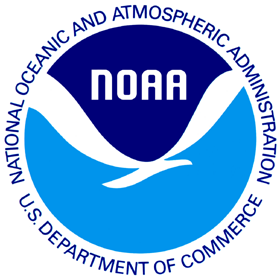Master of Science in Marine Sciences (MSMS)
 The Master of Science in Marine Sciences (MSMS) program is the only one of its kind based in Southeast Georgia with direct access to estuarine, coastal and open-ocean research environments. SSU is known as 'the University by the Sea' and the Georgia estuarine salt marsh ecosystem is out the backdoor of our classrooms and laboratories. SSU's distinguished Marine Science Program is a partner institution of the National Oceanic and Atmospheric Administration's Living Marine Resources Cooperative Science Center and is an associate member of the Consortium for Ocean Leadership.
The Master of Science in Marine Sciences (MSMS) program is the only one of its kind based in Southeast Georgia with direct access to estuarine, coastal and open-ocean research environments. SSU is known as 'the University by the Sea' and the Georgia estuarine salt marsh ecosystem is out the backdoor of our classrooms and laboratories. SSU's distinguished Marine Science Program is a partner institution of the National Oceanic and Atmospheric Administration's Living Marine Resources Cooperative Science Center and is an associate member of the Consortium for Ocean Leadership.
 The MSMS degree program prepares its graduates to address marine resource and coastal environmental issues through research, education, and outreach.
The MSMS degree program prepares its graduates to address marine resource and coastal environmental issues through research, education, and outreach.
The graduate program provides a strong background that includes marine and related sciences, marine policy and management, and state-of-the-art research tools and skills. Through seminar and technical writing, and courses students investigate marine issues and develop professional skills in critical thinking, logical interpretations, and delivery of professional-quality presentations. There are three tracks of study; traditional marine science research, applied marine science, and professional advancement, all of which require at least 30 semester hours of courses plus 6 credits of thesis research.
Collaborative Partnerships/Memberships
Formal collaborative agreements and partnerships that contribute to a framework of quality and excellence include:
- Skidaway Institute of Oceanography (MSMS partner)
- National Marine Fisheries Service (NMFS)
- National Oceanic & Atmospheric Administration (NOAA)
- University of Georgia Marine Science Program
Funded collaborative research and training programs exist with:
- Skidaway Institute of Oceanography
- University of Georgia Marine Education Center & Aquarium
- The Living Marine Resources Cooperative Science Center (LMRCSC) in cooperation with the University of Maryland Eastern Shore, the University of Maryland Center for Marine Biotechnology, Hampton University, Delaware State University, University of Miami (FL), and NMFS-NOAA Southeast Fisheries Science Center
Other partners include:
- Joint Oceanographic Institutions
- NOAA's Gray's Reef National Marine Sanctuary
- Coastal Resources Division of the Georgia Department of Natural Resources
- Tybee Island Marine Science Center
- Sol C. Johnson High School
- Thunderbolt Elementary Marine Science Academy
Admission Requirements
MSMS program applicants must hold a Bachelor's degree from an accredited institution. A STEM Bachelor's degree including one semester of Calculus is expected. Applicants are strongly advised to reach out to SSU faculty regarding potential thesis research. Completed admission applications are evaluated according to the following criteria:
- Grade point average of 3.0 or above preferred (2.50 Overall GPA is the minimum to apply)
- A prior course in Calculus
- GRE requirement is waived if an applicant has earned a Bachelor's Degree with an overall GPA of 2.50 or greater
- Two letters of recommendation (academic and/or professional)
- Essay (500-1,000 words) detailing research interests and reasons for pursuing the MSMS degree
- SSU Graduate Program Application
- Official transcripts from each college/university attended
- A resume that highlights work experience, professional/personal accomplishments, etc.
- Match with an SSU thesis advisor - Prospective students are recommended to contact potential thesis advisors early on in the application process to discuss their availability as an advisor, initial ideas for thesis research topics, funding, etc. Specific thesis and advisor interests or plans should be mentioned in the essay. A list of the Marine Science faculty can be found at;
https://www.savannahstate.edu/cost/mar-env-science/marine-science/directory.shtml
Master of Science in Marine Science Curriculum
The Master of Science in Marine Science's degree requires the completion of 36 semester hours of graduate course work, the equivalent of two years as a full-time student. Course work is organized into the following curriculum components:
- Core curriculum: 12 credit hours
- Field paper or Master's thesis I & II: 6 credit hours
- Course Requirements for Track 1, 2, or 3: 18 credit hours